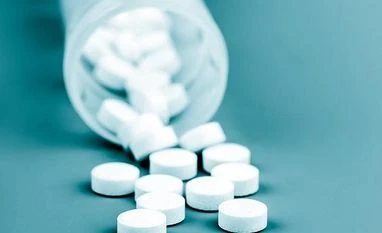The study points to a rapid spread of antibiotic resistance in the Indian population.
How was the study carried out?
More From This Section
What does the study show?
According to Dr Pallab Ray, professor of medicine microbiology at PGI Chandigarh who led the study, the inappropriate use of antibiotics has transformed the healthy human intestinal gut flora (microorganisms living in the digestive tract) into a reservoir of antibiotic-resistant organisms. At present, these organisms are resistant to low-end antibiotics but if the misuse persists, these may become resistant to high-end antibiotics as well,” Ray told TOI.
The spread of antibiotic resistance a cause for concern
The presence of antibiotic resistance in healthy individuals was a cause for concern because this signalled that it would get more difficult to treat infections in the future.
How does one become resistant to antibiotics
There are several ways of how individuals become antibiotic resistant.
— Inappropriate use of antibiotics
Under the illusion that taking antibiotics is essential even for a common cold, is a major cause of drug resistance. In this way, we have collectively overused antibiotics.
— Rampant use of antibiotics in livestock and poultry animals
Antibiotics are used in animals to treat infections, for growth promotion using sub-therapeutic levels, and for prophylactic purposes to prevent disease. There are high levels of antibiotic resistance in veterinary sectors. Resistant bacteria in animals can spread to humans in several ways.
— Improper disposal of residual antibiotics that enter the food chain.
How can this be tackled?
According to a report by UK Department of Health, there are four ways to tackle the problem of antibiotic resistance.
1. A global public awareness campaign to educate everyone about the problem of drug resistance.
2. The supply of new antibiotics needs to be improved so they can replace existing ones as they become ineffective.
3. Use antibiotics more selectively through the use of rapid diagnostics, to reduce unnecessary use, which speeds the incidence and spread of drug resistance.
4. Reduce unnecessary use of antibiotics in agriculture and poultry
To read the full story, Subscribe Now at just Rs 249 a month
Already a subscriber? Log in
Subscribe To BS Premium
₹249
Renews automatically
₹1699₹1999
Opt for auto renewal and save Rs. 300 Renews automatically
₹1999
What you get on BS Premium?
-
Unlock 30+ premium stories daily hand-picked by our editors, across devices on browser and app.
-
Pick your 5 favourite companies, get a daily email with all news updates on them.
Full access to our intuitive epaper - clip, save, share articles from any device; newspaper archives from 2006.
Preferential invites to Business Standard events.
Curated newsletters on markets, personal finance, policy & politics, start-ups, technology, and more.
Need More Information - write to us at assist@bsmail.in
)